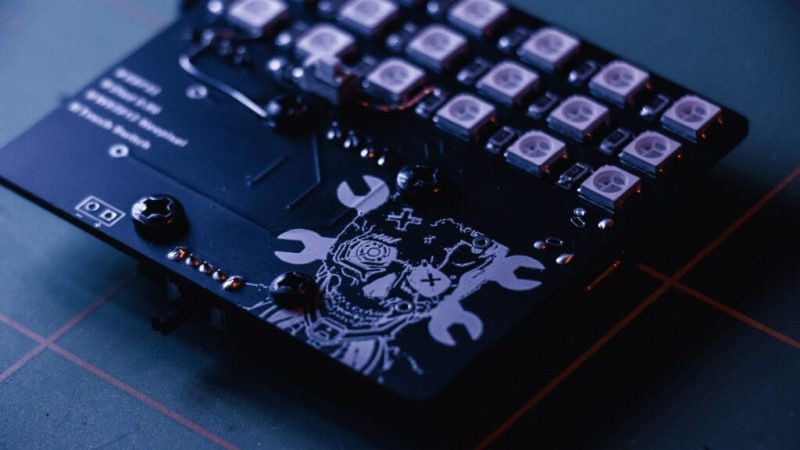Hackaday Links: January 7, 2024

Oh, perfect — now our cars can BSOD. At least that’s how it looks from a forum post showing a Blue Screen of Death on a Ford Mustang Mach E, …read more Continue reading Hackaday Links: January 7, 2024
Collaborate Disseminate

Oh, perfect — now our cars can BSOD. At least that’s how it looks from a forum post showing a Blue Screen of Death on a Ford Mustang Mach E, …read more Continue reading Hackaday Links: January 7, 2024

Have you ever wanted to match paint to the color of a pillow, or make a website where the primary color matches your favorite shade of electrolytic capacitor? Then ColorReplica …read more Continue reading ColorReplica Is a Rainbow At Your Fingertips
Hey there, detectives. Welcome to Oxygen Forensics How-To series, where your Oxygen Forensic training team will provide you with detailed insight into focused areas within Oxygen Forensic Detective.
For this video, we are going to dive into u… Continue reading Hex Searching in Oxygen Forensic Detective
As companies embrace the use of data, hiring more data scientists, a roadblock persists around sharing that data. It requires too much copying and pasting and manual work. Hex, a new startup, wants to change that by providing a way to dispense data across the company in a streamlined and elegant way. Today, the company […] Continue reading Hex lands $5.5M seed to help data scientists share data across the company
As companies embrace the use of data, hiring more data scientists, a roadblock persists around sharing that data. It requires too much copying and pasting and manual work. Hex, a new startup, wants to change that by providing a way to dispense data across the company in a streamlined and elegant way. Today, the company […] Continue reading Hex lands $5.5M seed to help data scientists share data across the company
We love clocks here at Hackaday, and so does [John Whittington]. Last year he created this hexagonal honey clock (or “Honock”) by combining some RGB LEDs with a laser-cut frame to create a smooth time display that uses color and placement to display time with a simple and attractive system.
The outer ring of twelve hexagons is essentially the hour hand, similar to analog clock faces: twelve is up, three is directly to the right, six is straight down, and nine is to the left. The inner ring represents ten minutes per hex. Each time the inner ring fills, the …read more
Continue reading Watch the Honeycomb Clock Gently Track Time
Becoming accomplished with a lathe is a powerful skillset, but it’s only half of the journey. Being clever comes later, and it’s the second part of the course. Patience is in there somewhere too, but let’s focus on being clever. [TimNummy] wants a knobbed bolt with critical parameters, so he makes his own. After the break, there is a sixty-second summary of the linked video.
Making stock hardware is a beginner’s tasks, so custom hardware requires ingenuity or expensive machinery. Adding finger notches to a bolthead is arbitrary with an indexing chuck, but one isn’t available. Instead, hex stock becomes …read more
If you can’t stand the thought of using an application in your browser, you might as well jump ahead to the comments and start flaming.
Still with us? Imagine this scenario. You are at the office, at a client’s site, at a school, or visiting your mom. Suddenly, for some strange reason, you need to edit a hex file. We don’t know why, but if you are reading Hackaday, it isn’t that big of a stretch to imagine it. What do you do? Download and install a hex editor? Maybe you can’t. Or, if it is mom’s computer, maybe you …read more
It’s not uncommon for hackers to have a particular delectation for unusual interior decoration. Maybe it’s a Nixie tube clock, or a vacuum fluorescent display reading out the latest tweets from a favorite chatbot. If this sounds like your living room already, perhaps you’d like some of these file format posters to adorn your walls.
The collection of images includes all kinds of formats — GIF, ZIP and WAV are all represented, but it even gets into some real esoterica — DOLphin format executables are here if you’re a total GameCube fanatic. Each poster breaks down the format into parts, …read more
[Yann]’s DYPLED entry into this year’s Hackaday Prize isn’t very useful to most people. It’s a tiny module that connects to a 16-bit parallel bus, and displays a hexadecimal number on a few LEDs. It’s useful if you’re diagnosing a problem on a computer from 1982, but just barely. The real wonder here is how [Yann] is doing this cheaply and easily using some weird techniques and strange parts.
The display for this tiny device is an array of 36 LEDs, arranged into a set of five seven-segment displays. Homebrew seven-segment displays are cool, but how is he driving it? …read more
![]() Continue reading Hackaday Prize Entry: Autorouters Are For The Weak
Continue reading Hackaday Prize Entry: Autorouters Are For The Weak